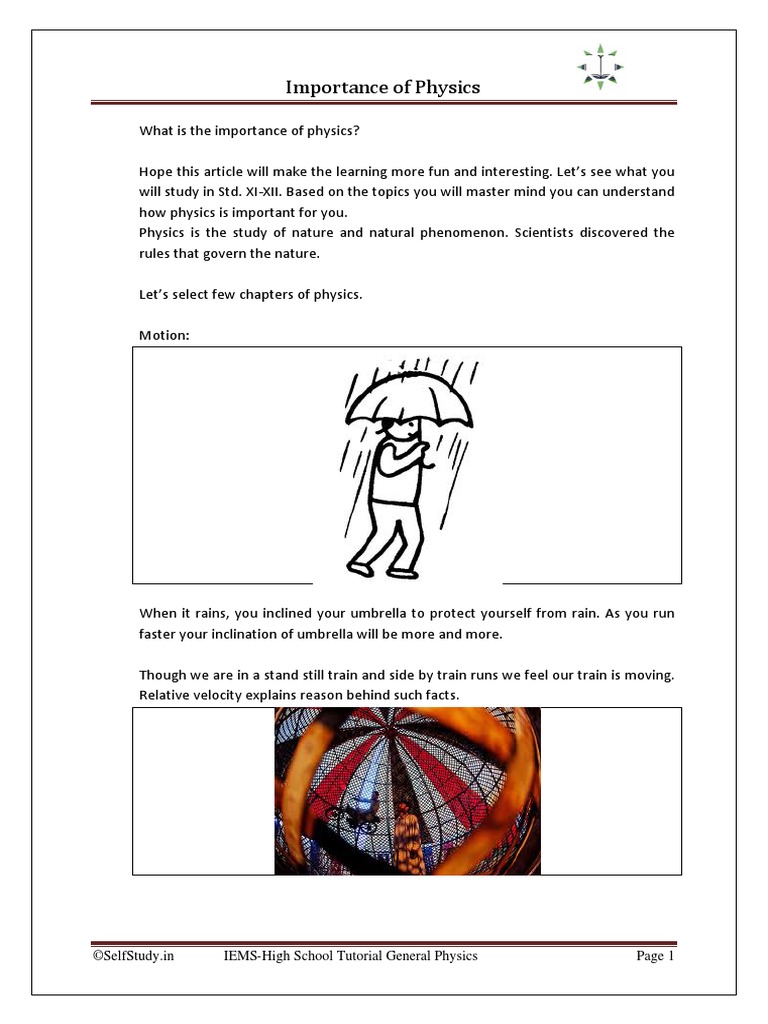Physics, often regarded as the foundational science, elucidates the fundamental principles that govern the natural world. However, its relevance transcends the mere confines of academic inquiry, profoundly permeating the realm of international relations (IR). The intersection of physics and international affairs fosters an understanding of the intricate dynamics of global interactions, enriching diplomatic dialogue and strategic decision-making. This discourse aims to unravel the multifaceted importance of physics within the context of international relations, illustrating how it informs policy decisions, fosters technological advancements, and shapes global security paradigms.
One of the most salient contributions of physics to international relations lies in the realm of technology. Technological innovation, often catalyzed by breakthroughs in physics, plays a pivotal role in shaping power dynamics between states. For instance, advances in nuclear physics have revolutionized both energy production and military capabilities. The advent of nuclear weapons, rooted in the principles of atomic physics, altered the fabric of global power structures. Countries equipped with nuclear capabilities wield significant influence on the international stage, their power often dictating the geopolitical landscape. The resulting deterrence theory—wherein the possession of nuclear weapons is believed to prevent conflict due to the mutually assured destruction—illustrates the intricate dance between scientific progress and statecraft.
Moreover, physics informs international relations through the lens of environmental science and climate change—a crucial global issue bearing significant implications for state interaction. The foundational concepts of thermodynamics and fluid dynamics elucidate the mechanisms driving climate systems and atmospheric phenomena. As nations grapple with the repercussions of climate change, the scientific acumen derived from physics becomes indispensable in formulating viable environmental policies. International treaties aimed at reducing carbon emissions, such as the Paris Agreement, are fundamentally informed by scientific research. Understanding the physics of climate change not only promotes international cooperation but fosters a collective responsibility towards a sustainable future.
The importance of physics is further underscored in the realm of technology transfer and global inequality. Emerging technologies, grounded in advanced physics, possess the potential to mitigate poverty and elevate living standards across developing nations. However, disparities in technological access often exacerbate existing inequalities. Nations hoarding technological advancements, particularly in physics-related fields, can wield disproportionate influence over global governance structures. Therefore, fostering collaborative initiatives in science and technology, grounded in a strong physics foundation, is imperative for equitable development. Programs that promote knowledge exchange and capacity-building in physics can engender greater international solidarity and address the technocratic divide.
In addition to technological implications, the principles derived from physics extend to the social sciences, effectively framing international conflict and cooperation. Game theory, informed by mathematical physics and systems analysis, offers critical insights into the strategic behaviors of states. The rational actor model, often applied in the decision-making processes of nations, hinges on an understanding of both physical principles and human behavior. By utilizing models drawn from physics, analysts can predict actions and reactions among states, enhancing our comprehension of international diplomacy. Such interdisciplinary approaches delineate the nuances of state behavior in arena ranging from trade negotiations to military alliances.
Furthermore, as the global landscape evolves, emerging technologies—specifically artificial intelligence (AI) and quantum computing—present new challenges and opportunities within international relations, compelling a reevaluation of international legal frameworks. Quantum physics promises revolutionary advancements in computing power, shaping new frontriers of cybersecurity and diplomatic interactions. Nations must navigate the complexities of these transformative technologies via collaborative frameworks and ethical considerations, thereby establishing norms and regulations that uphold global peace and stability. The collaboration of physicists, policymakers, and ethicists is critical in shaping a future in which technological advances do not outpace moral and legal considerations.
Exploring the relational dynamics between physics and international relations reveals yet another layer: the role of science diplomacy. This burgeoning field leverages scientific collaborations as a means of fostering international cooperation. By transcending political barriers, physicists play a pivotal role in establishing dialogues that promote mutual understanding and trust among nations. The CERN facility, for instance, embodies a bastion of scientific collaboration that includes countries with divergent political affiliations. Through shared scientific pursuits, states can cultivate diplomatic relationships and mitigate conflicts, emphasizing the unifying power of knowledge.
Moreover, the geopolitical competition for scarce resources—especially in the context of energy—further illustrates the indispensable role of physics. The pursuit of renewable energy technologies, including solar, wind, and nuclear energy, highlights the intricate interplay between scientific advancement and international competition. Nations are increasingly seemingly engaged in a race to dominate these technologies, not merely for their economic implications but also for their potential to reshape the global energy landscape. As the quest for energy security becomes intertwined with national security, the scientific principles guiding energy production and sustainability assume a central role in shaping strategic imperatives.
In summation, the confluence of physics and international relations offers profound insights into global complexities, underscoring the necessity of an interdisciplinary approach. As the world confronts pressing challenges—ranging from climate change to technological proliferation—the importance of physics cannot be overstated. By appreciating the role of physics within the contours of international relations, policymakers and scholars alike can develop innovative solutions that foster collaboration, enhance security, and promote sustainable progress. Ultimately, as we navigate the intricate tapestry of global interactions, the lens of physics promises a shift in perspective, poised to pique our curiosity and inspire a deeper understanding of the world we inhabit.












